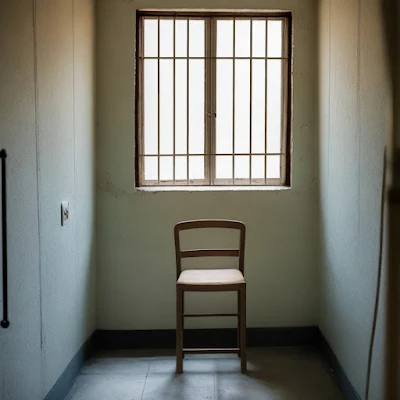- Get link
- X
- Other Apps
- Get link
- X
- Other Apps
When Law Becomes Injustice: Navigating Ethical Dilemmas in the Legal System
The legal system is designed to uphold justice, protect rights, and maintain societal order. However, there are instances where the law itself can inadvertently become a source of injustice. In this thought-provoking article, we delve into the complexities of situations where the law fails to serve the cause of justice and how ethical dilemmas can arise within the legal framework.
In a world governed by laws and regulations, the principle of justice stands as a cornerstone of any functional society. However, there are instances when the very system designed to ensure justice becomes a source of injustice. This article delves into the unsettling phenomenon of when law turns into injustice, exploring real-world cases and shedding light on the factors that contribute to systemic failures within the legal system.
( Read our article on What are the Most Money Making Feilds In Law )
Unintended Consequences of Legal Decisions
While the law aims to provide structure and fairness, it can sometimes lead to unjust outcomes. Here are some scenarios where the law may inadvertently perpetuate injustice:
Understanding Legal System Failures: When Justice is Denied
Legal system failures occur when the principles meant to protect and serve individuals and society fall short of their intended purpose. These failures can manifest in various ways, including wrongful convictions, disproportionate sentencing, and lack of access to legal representation. Understanding the root causes of these failures is crucial to addressing and preventing them.
Innocence Project: A Glimpse into Wrongful Convictions
The Innocence Project, a non-profit organization, has shed light on the alarming issue of wrongful convictions. Through DNA evidence and thorough investigations, they have helped exonerate individuals who were wrongfully imprisoned. These cases underscore the fact that even with a legal system in place, errors can lead to life-altering consequences for innocent individuals.
Socioeconomic Disparities: Unequal Access to Justice
Socioeconomic disparities play a significant role in determining the outcomes of legal cases. Those who cannot afford quality legal representation often face harsher consequences, perpetuating a cycle of injustice. The inability to access legal resources can lead to a lack of understanding of one's rights and options, resulting in unjust outcomes.
Racial Bias and Discrimination: A Systemic Issue
Racial bias and discrimination have long plagued legal systems around the world. Minorities often face unequal treatment, harsher sentencing, and systemic biases that contribute to their unjust treatment within the legal system. Addressing these deeply rooted issues is essential to creating a fair and equitable legal environment.
Judicial Discretion: Balancing Power and Accountability
Judicial discretion, while a crucial aspect of the legal system, can sometimes lead to disparities in sentencing. The subjective nature of decisions made by judges can result in inconsistent outcomes, where similar cases receive vastly different judgments. Striking a balance between judicial discretion and accountability is essential to prevent injustices.
Importance of Legal Reform: Ensuring Equitable Justice
Legal reform plays a pivotal role in rectifying systemic failures within the legal system. By addressing issues such as mandatory minimum sentences, bail reform, and improving access to legal representation, societies can work towards a more just and equitable legal landscape.
1. Mandatory Minimum Sentences
Issue: Mandatory minimum sentences can result in disproportionate punishments, particularly for nonviolent offenses. This has led to concerns about overcrowded prisons and unequal treatment under the law.
2. Three-Strikes Laws
Issue: Three-strikes laws can lead to excessively long sentences for individuals convicted of multiple offenses, often for nonviolent crimes. Critics argue that these laws undermine the principles of proportionality and rehabilitation.
3. Racial Disparities in the Legal System
Issue: Racial disparities in arrests, sentencing, and incarceration highlight systemic bias within the legal system, raising concerns about equal protection under the law.
4. Civil Forfeiture
Issue: Civil forfeiture allows law enforcement to seize property suspected of being connected to criminal activity, often without requiring a conviction. Critics argue that this can lead to abuse and violations of property rights.
Addressing Ethical Dilemmas in the Legal System
Ethical Dilemmas: When the law becomes an instrument of injustice, legal professionals face ethical dilemmas. Balancing their duty to uphold the law with their commitment to justice can be challenging.
Conclusion: Striving for a Just Legal System
While the legal system plays a vital role in maintaining order and justice, it's crucial to recognize that it can also become a source of injustice due to unintended consequences and systemic biases. Legal professionals and society as a whole must continually strive to identify and rectify these shortcomings, ensuring that the law serves its intended purpose of upholding justice and protecting the rights of all individuals. By addressing ethical
dilemmas and advocating for reforms, we can work towards a more just and equitable legal framework.
In conclusion, the unsettling reality of when the law becomes injustice highlights the imperative of a fair and equitable legal system. While laws are designed to maintain order and protect individual rights, systemic failures can lead to grave injustices. Addressing issues related to wrongful convictions, socioeconomic disparities, racial bias, and judicial discretion is essential for achieving a legal system that upholds the principles of justice for all.
FAQs About Injustice Within the Legal System
Q1: Can unjust laws be challenged?
A: Yes, individuals and advocacy groups often challenge unjust laws through legal avenues, seeking to bring about change.
Q2: How can legal professionals address ethical dilemmas?
A: Legal professionals can navigate ethical dilemmas by advocating for reform, supporting clients' rights, and upholding their duty to justice.
Q3: Are there historical examples of laws perpetuating injustice?
A: Yes, historical examples include Jim Crow laws, segregation, and laws criminalizing interracial marriage.
Q4: How can society work towards a more just legal system?
A: Society can work towards justice by advocating for legal reforms, promoting equal access to legal representation, and raising awareness about systemic issues.
- Get link
- X
- Other Apps







Comments
Post a Comment